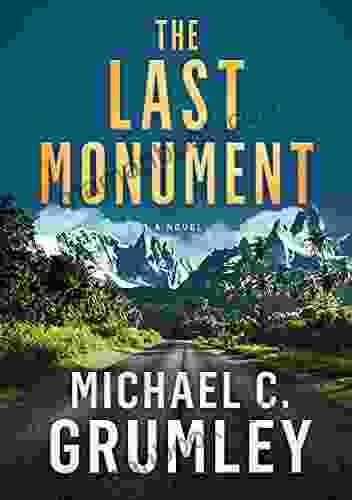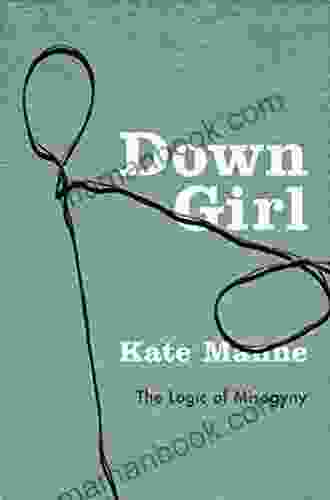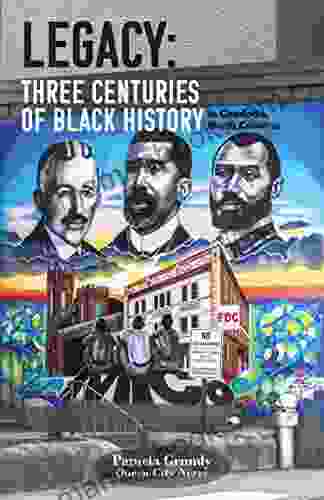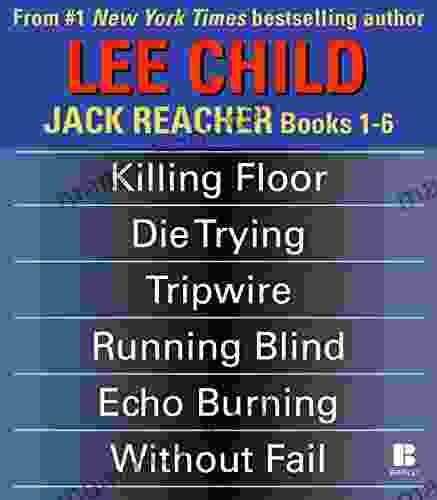Three Centuries of Black History in Charlotte, North Carolina

Charlotte, North Carolina has a rich and vibrant Black history that spans over three centuries. From its humble beginnings as a small settlement to its present-day status as a major metropolitan area, Charlotte has been home to a thriving Black community that has played a vital role in the city's development.
5 out of 5
| Language | : | English |
| Hardcover | : | 326 pages |
| Item Weight | : | 1.39 pounds |
| Dimensions | : | 6.14 x 0.75 x 9.21 inches |
| File size | : | 50174 KB |
| Text-to-Speech | : | Enabled |
| Screen Reader | : | Supported |
| Enhanced typesetting | : | Enabled |
| Word Wise | : | Enabled |
| Print length | : | 126 pages |
| Lending | : | Enabled |
The first Africans arrived in Charlotte in the early 1700s as slaves. They were brought to the area to work on the tobacco plantations that were springing up in the region. As the city grew, so did its slave population. By the time of the Civil War, there were over 4,000 slaves in Charlotte.
The Civil War had a profound impact on Charlotte's Black community. Many slaves escaped to Union lines during the war, and after the war, they began to establish their own communities in Charlotte. In 1865, the first Black church in Charlotte, First Baptist Church, was founded. And in 1867, the first Black school in Charlotte, Biddleville School, was opened.
During the Reconstruction era, Charlotte's Black community made significant progress. Black leaders were elected to local office, and Black businesses began to flourish. However, this progress was short-lived. In the late 1800s, white supremacists began to regain control of the South, and Black people in Charlotte faced increasing discrimination and violence.
The Jim Crow era was a dark time for Black people in Charlotte. They were forced to live in segregated neighborhoods, attend segregated schools, and use segregated public facilities. They were also denied the right to vote and serve on juries. Despite these challenges, Charlotte's Black community continued to resist oppression.
In the early 1900s, Charlotte became a major center of the civil rights movement. Local leaders such as Kelly Alexander and Reginald Hawkins fought for equal rights for Black people. In 1960, the Greensboro sit-ins sparked a wave of protests across the South, and Charlotte was no exception. Black students in Charlotte staged sit-ins at local restaurants and lunch counters, and they eventually succeeded in desegregating these businesses.
The civil rights movement brought about significant changes in Charlotte. Black people were finally able to vote, serve on juries, and attend integrated schools. However, the fight for equality was not over. In the 1970s, Charlotte experienced a number of race riots, which highlighted the continuing tensions between Black and white residents.
In the years since the civil rights movement, Charlotte has made significant progress in race relations. The city has elected Black mayors and city council members, and Black businesses have flourished. However, there is still work to be done to achieve full equality for Black people in Charlotte.
Key Moments in Charlotte's Black History
- 1700s: First Africans arrive in Charlotte as slaves.
- 1865: First Black church in Charlotte, First Baptist Church, is founded.
- 1867: First Black school in Charlotte, Biddleville School, is opened.
- Late 1800s: White supremacists regain control of the South, and Black people in Charlotte face increasing discrimination and violence.
- Early 1900s: Charlotte becomes a major center of the civil rights movement.
- 1960: Black students in Charlotte stage sit-ins at local restaurants and lunch counters, and they eventually succeed in desegregating these businesses.
- 1970s: Charlotte experiences a number of race riots, which highlight the continuing tensions between Black and white residents.
- Since the civil rights movement, Charlotte has made significant progress in race relations, but there is still work to be done to achieve full equality for Black people in Charlotte.
Key Figures in Charlotte's Black History
- Kelly Alexander: Civil rights activist who led the fight for desegregation in Charlotte.
- Reginald Hawkins: Civil rights activist who worked to improve the lives of Black people in Charlotte.
- Harvey Gantt: First Black mayor of Charlotte.
- Vi Lyles: Current mayor of Charlotte.
Charlotte's Black history is a story of struggle and triumph. Despite centuries of discrimination and oppression, Black people in Charlotte have made significant progress in achieving equality. Today, Charlotte is a vibrant and diverse city that is home to a thriving Black community.
As we look to the future, it is important to remember the lessons of the past. We must continue to work to build a more just and equitable society for all people, regardless of race.
Image Credits
- Image of Kelly Alexander: Charlotte Observer
- Image of Reginald Hawkins: Charlotte Magazine
- Image of Harvey Gantt: Charlotte Observer
- Image of Vi Lyles: Charlotte Observer
5 out of 5
| Language | : | English |
| Hardcover | : | 326 pages |
| Item Weight | : | 1.39 pounds |
| Dimensions | : | 6.14 x 0.75 x 9.21 inches |
| File size | : | 50174 KB |
| Text-to-Speech | : | Enabled |
| Screen Reader | : | Supported |
| Enhanced typesetting | : | Enabled |
| Word Wise | : | Enabled |
| Print length | : | 126 pages |
| Lending | : | Enabled |
Do you want to contribute by writing guest posts on this blog?
Please contact us and send us a resume of previous articles that you have written.
 Top Book
Top Book Novel
Novel Fiction
Fiction Nonfiction
Nonfiction Literature
Literature Paperback
Paperback Hardcover
Hardcover E-book
E-book Audiobook
Audiobook Bestseller
Bestseller Classic
Classic Mystery
Mystery Thriller
Thriller Romance
Romance Fantasy
Fantasy Science Fiction
Science Fiction Biography
Biography Memoir
Memoir Autobiography
Autobiography Poetry
Poetry Drama
Drama Historical Fiction
Historical Fiction Self-help
Self-help Young Adult
Young Adult Childrens Books
Childrens Books Graphic Novel
Graphic Novel Anthology
Anthology Series
Series Encyclopedia
Encyclopedia Reference
Reference Guidebook
Guidebook Textbook
Textbook Workbook
Workbook Journal
Journal Diary
Diary Manuscript
Manuscript Folio
Folio Pulp Fiction
Pulp Fiction Short Stories
Short Stories Fairy Tales
Fairy Tales Fables
Fables Mythology
Mythology Philosophy
Philosophy Religion
Religion Spirituality
Spirituality Essays
Essays Critique
Critique Commentary
Commentary Glossary
Glossary Bibliography
Bibliography Index
Index Table of Contents
Table of Contents Preface
Preface Introduction
Introduction Foreword
Foreword Afterword
Afterword Appendices
Appendices Annotations
Annotations Footnotes
Footnotes Epilogue
Epilogue Prologue
Prologue D Lulu
D Lulu Malcolm X
Malcolm X Katrina Cope
Katrina Cope Jenna Austin
Jenna Austin Marie Howley
Marie Howley Rachel Gibson
Rachel Gibson Laura Formentini
Laura Formentini John Locke
John Locke Flora Madison
Flora Madison Lizzie Huxley Jones
Lizzie Huxley Jones Robert K Ressler
Robert K Ressler Emma Slate
Emma Slate Mollie V Blackburn
Mollie V Blackburn Greg Stine
Greg Stine Jennifer Lees Marshment
Jennifer Lees Marshment Aimie K Runyan
Aimie K Runyan Drew Lindsay
Drew Lindsay William F Amato
William F Amato S B Linton
S B Linton James Legge
James Legge
Light bulbAdvertise smarter! Our strategic ad space ensures maximum exposure. Reserve your spot today!

 Brenton CoxScience Teaching Reconsidered: A Comprehensive Review of the Transformative...
Brenton CoxScience Teaching Reconsidered: A Comprehensive Review of the Transformative...
 W. Somerset MaughamUnveiling the Grand Plan: Paving the New Silk Road, a Global Economic...
W. Somerset MaughamUnveiling the Grand Plan: Paving the New Silk Road, a Global Economic...
 Darrell PowellDecluttering Your Home in a Year or Less: A Step-by-Step Guide with Printable...
Darrell PowellDecluttering Your Home in a Year or Less: A Step-by-Step Guide with Printable...
 Cristian CoxThe Last Monument by Michael Grumley: A Journey Through History, War, and the...
Cristian CoxThe Last Monument by Michael Grumley: A Journey Through History, War, and the... Yasushi InoueFollow ·19.2k
Yasushi InoueFollow ·19.2k Thomas HardyFollow ·19.4k
Thomas HardyFollow ·19.4k Elmer PowellFollow ·14.9k
Elmer PowellFollow ·14.9k Hudson HayesFollow ·15.8k
Hudson HayesFollow ·15.8k Mario BenedettiFollow ·7.8k
Mario BenedettiFollow ·7.8k Douglas FosterFollow ·6.5k
Douglas FosterFollow ·6.5k Ian MitchellFollow ·15k
Ian MitchellFollow ·15k Jack LondonFollow ·3k
Jack LondonFollow ·3k

 Ernest Powell
Ernest PowellBenefits of Corporal Punishment: A Review of the...
Corporal punishment is a form of physical...

 Bobby Howard
Bobby HowardThe Development and Significance of African American...
African American...

 Guy Powell
Guy PowellDown Girl: The Logic of Misogyny - A Comprehensive...
In her groundbreaking work,...

 Forrest Blair
Forrest BlairThe Bikini Changing Room: A Micro Mini Romance
In the heart of...
5 out of 5
| Language | : | English |
| Hardcover | : | 326 pages |
| Item Weight | : | 1.39 pounds |
| Dimensions | : | 6.14 x 0.75 x 9.21 inches |
| File size | : | 50174 KB |
| Text-to-Speech | : | Enabled |
| Screen Reader | : | Supported |
| Enhanced typesetting | : | Enabled |
| Word Wise | : | Enabled |
| Print length | : | 126 pages |
| Lending | : | Enabled |








